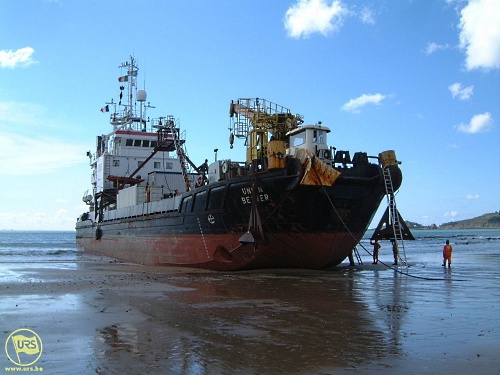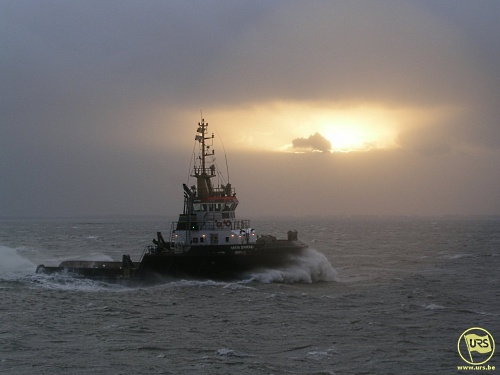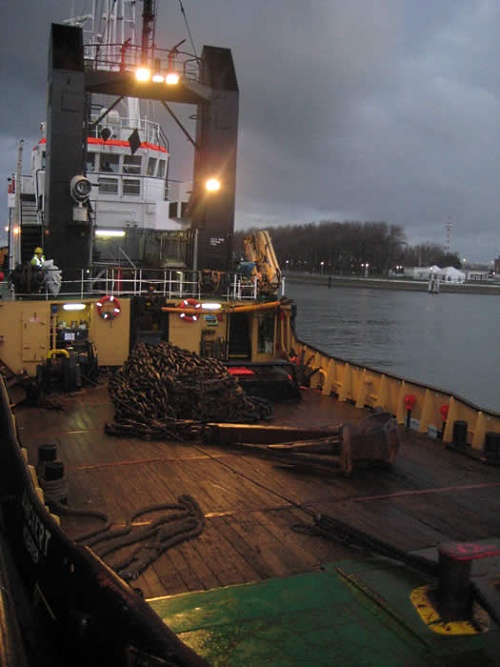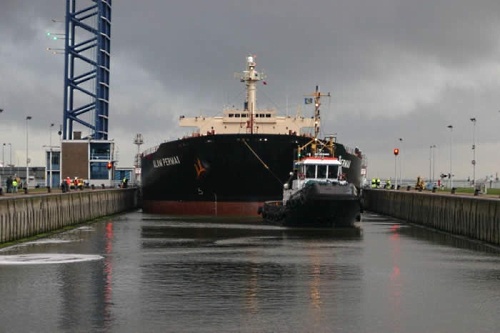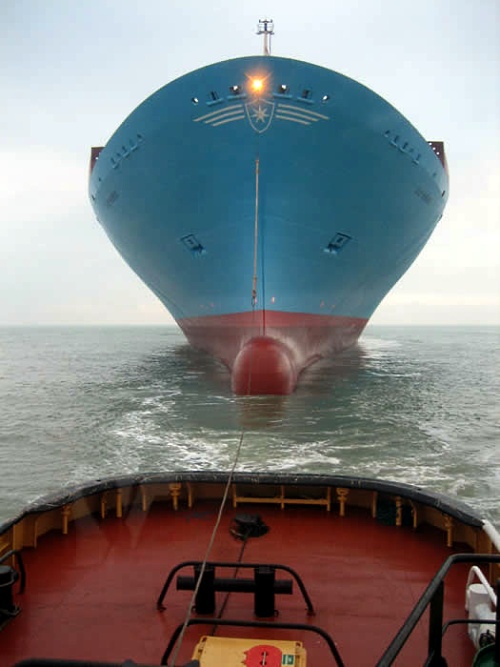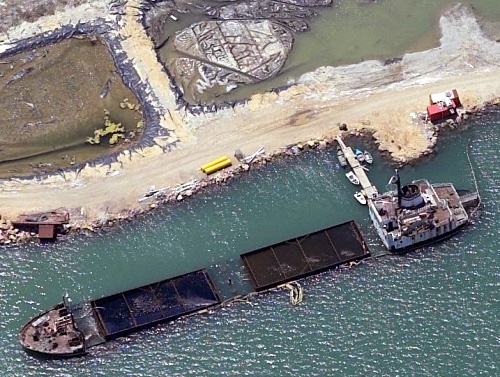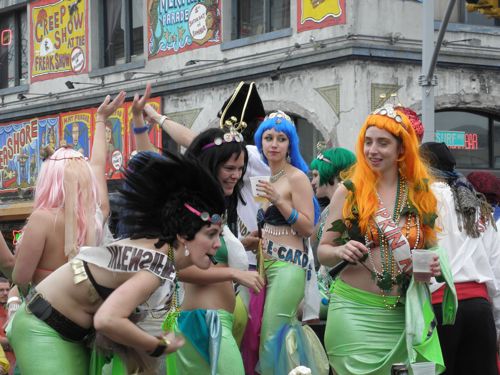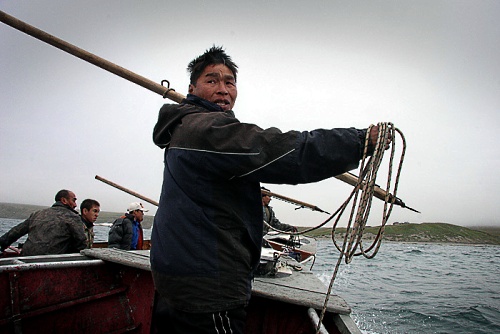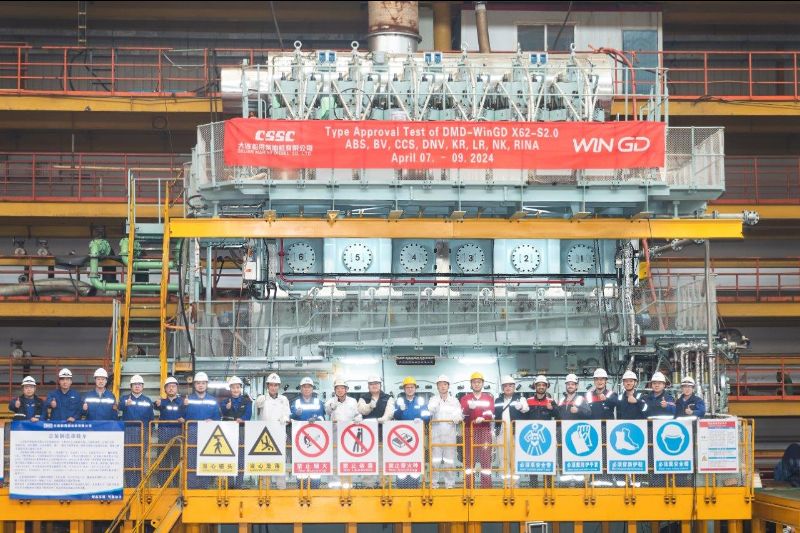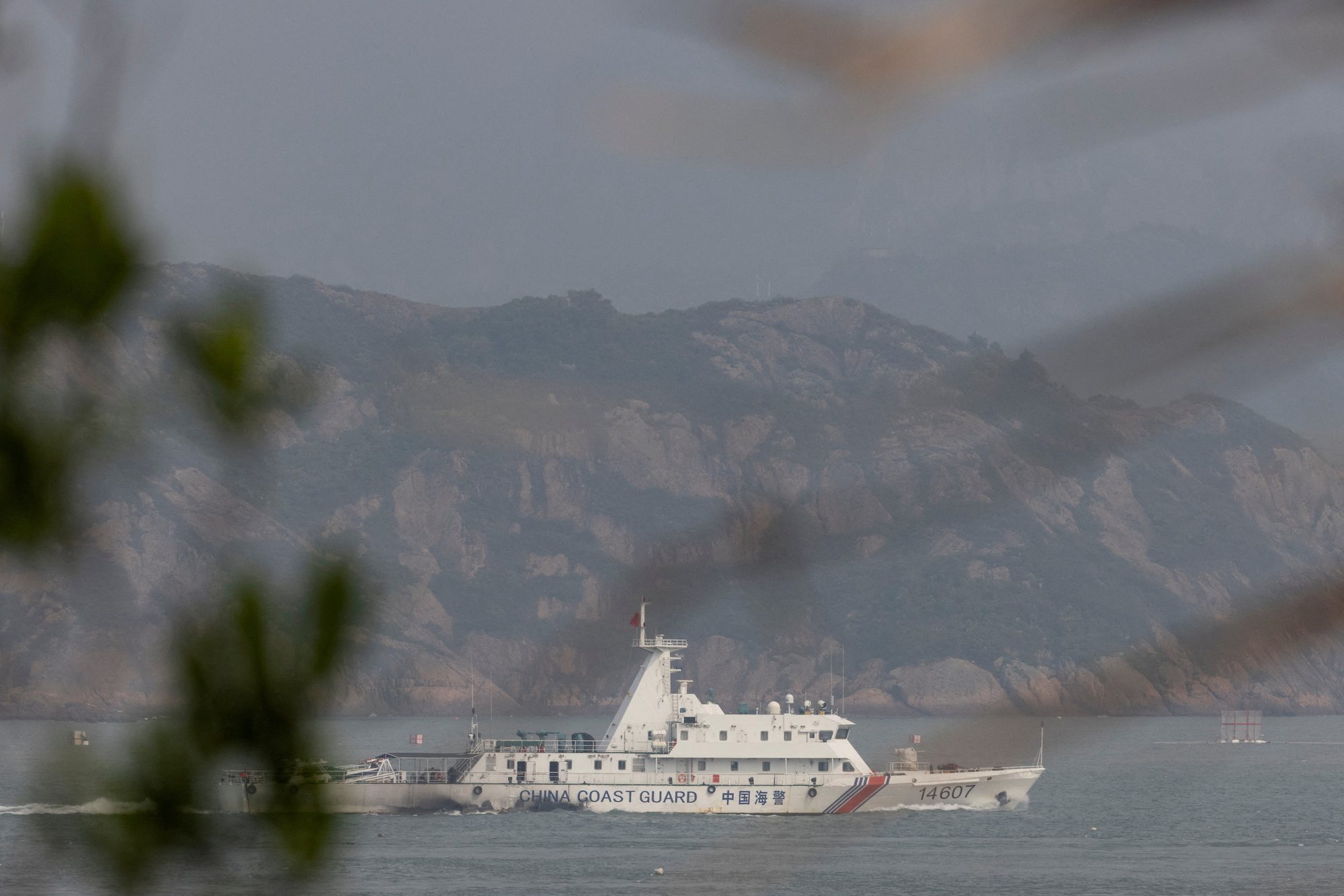Maritime Monday 167
The following is posted by Fred Fry:
Welcome to this 167th edition of Maritime Monday.
You can find Maritime Monday 117 here. (Published 30 June 2008)
You can find last week’s edition here.
You can find links to all the previous editions at the bottom of this post. You are encouraged to participate using the comment link/form at the bottom of the post. If you have photos or stories to tell, do email me at [email protected].
—————————————-
This Week’s Photos:
This week’s photos come from the website of URS:
URS is the leading Towage and Salvage Company for all Dutch and Belgian ports on the river Scheldt with a towing history going back to 1870. Today every vessel anywhere on the seven seas can rely on us for assistance and services.
URS operates one of the most efficient modern fleets with full multi-task capabilities, incorporating the highest quality equipment that is so essential for safety, reliability and quality service.
Our strengths are based on our nautical, salvage and technical/maintenance departments, including our own marine workshop. Our experienced, extensively trained and service-minded staff provides the knowledge and craftsmanship that modern shipping requires.
In the past, in our traditional towage and salvage activities, URS had a reputation, second to none, for guaranteed service and availability. Today we are renowned for our specialist activities in coastal and river escort services, in offshore operations and in the safety and technical aspects of special shipping and salvage demands. Tomorrow we plan to use our know-how to extend our relations with you. – Link
* ‘8-Point Mooring Vessel’ UNION BEAVER *
* UNION DIAMOND *
* Anchor Handling Tug BANCKERT – “OUR AHT BANCKERT (63 TBP) was ordered to retrieve 2 lost anchors offshore Dunkirk from a Chemical Tanker of LOA 202 m. Both anchors (9.2 T each) were delivered at the URS berth in Zeebrugge.” *
* “URS tugboats assist with the arrival of the first Post Panamax M/V ALAM PERMAI through the locks of Terneuzen, heading for ARCELORMITTAL in Ghent.” (Pictuters www.tugspotters.com) *
* “URS tugs assisting the container vessel ELLY MAERSK while entering the port of Zeebrugge.” *
Their homepage can be found here.
—————————————-
This Week’s Items:
EagleSpeak has ““No to arming merchant crew” – Maritime Safety Committee“.
The MSC agreed that flag States should strongly discourage the carrying and use of firearms by seafarers for personal protection or for the protection of a ship. Seafarers, it was agreed, are civilians and the use of firearms requires special training and aptitudes and the risk of accidents with firearms carried on board ship is great. Carriage of arms on board ship may encourage attackers to carry firearms or even more dangerous weapons, thereby escalating an already dangerous situation. Any firearm on board may itself become an attractive target for an attacker. Carriage of firearms may pose an even greater danger if the ship is carrying flammable cargo or similar types of dangerous goods.
It was agreed that the use of unarmed security personnel is a matter for individual shipowners, companies, and ship operators to decide. The carriage of armed security personnel, or the use of military or law-enforcement officers (duly authorized by the Government of the flag State to carry firearms for the security of the ship) should be subject to flag State legislation and policies and is a matter for the flag State to authorize, in consultation with ship owners, companies and ship operators.
This is a load of bull. Worse, it completely ignores the current situation given that the pirates already are using automatic weapons and RPGs. At most, this is just one more seafarer task in need of training. Should every seafarer be armed? Certainly not, but I bet the Captain is a good judgment of character when it comes to his crew in deciding who gets a weapon and who mans a fire hose.
gCaptain has the ongoing problem “YOUblog Article – Seafarer Access to Shoreleave“.
Professional Mariner has “Great Lakes win only 2 percent of Corps’ stimulus dollars“.
Donald Cree, president of the task force, said the amount allocated by the Corps for the Great Lakes “isn’t even enough to end the dredging crisis that is strangling the system. The Corps’ estimates removing the backlog of sediment — 17 million cubic yards — will cost more than $200 million.”
Kennebec Captain has a look at a serious problem in “Irrelevant Training on Obsolete Open Lifeboats“.
The modern enclosed lifeboat and davits is an attempt to idiot proof the launching system. These systems have problems which can be partly mitigated with training.
One Free Korea has “Not that we should care, but it’s still “illegal” to search North Korean ships on the high seas (Updated: Missiles to Burma?).” I am surprised that this whole issue is out in the open. The whole operation should have been kept in the dark until after any boarding.
Towmasters: the Master of Towing Vessels Assoc. Forum has “Photo Of The Week – 6/15/09“.
The Merchant Marine Express has “Registering For Work!” with AMO as his vacation time is up and his ship has been laid up.
Keith Loutit has his latest in tilt-shift video with “Bathtub V” which is great video of Sydney Harbor. (Found via Casco Bay Boaters Blog)
Casco Bay Boaters Blog has what might be the end of the small fisherman in “Move to Redefine New England Fishing“.
Vincenzo Russo, a fisherman here for 35 years, used to fish as many days as he wanted, but federal regulations now require him to secure expensive permits — up to $500,000 — if he wants to fish more than 73 days a year.
The Journal of Commerce has “Coast Guard Halts Work on New Detroit Bridge“.
Danger Room has “Navy Admiral Wants Do-Good Battlegroups“.
For decades, the U.S. Navy has been built around its carrier battlegroups and amphibious ready groups: huge clusters of heavily armed warships, tailored for delivering massive firepower, in the form of airplanes or Marines. But for today’s “hybrid” wars, where winning over local populations is as important as killing the bad guys, these traditional naval groups aren’t necessarily the best things.
—————————————-
Maritime Information Centre has “Grand China Logistics places largest shipbuilding order“.
Zhoushan Jinhaiwan Shipyard has secured a bumper order for 30 bulkers from fast emerging Grand China Logistics, one of the largest single orders placed in China of all time.
The BBC has video of the attack: “Coal protesters board cargo ship“. Looks like nothing was done to prevent them from boarding. Not even fire hoses. Was this lack of a response due to fears of harming protesters? How does that fit into the ship’s security plan?
Panbo has the latest marine related iPhone applications in a post titled “iPhone mania, a marine app slide show“. While most of these are targeted to boaters we did receive a tip
on, what might be, the first iPhone application aimed at commercial shipping, the AIS based vessel locator “Ship Finder“.
Ocean Sentry has “Sea Shepherd Victory in the Canadian Courts” as the case is thrown out and “Captain Paul Watson Dismisses and Disses the Whale Wars Critics“.
USA Today has “Supreme Court ruling could bolster effort to kill Alaskan tax on cruisers“.
While ports can charge fees for services rendered such as pilotage and towing, the tonnage clause of the Constitution prohibits states from charging a fee simply for the privilege of entering a port.
The Supreme Court ruled that the Valdez tax, which the Empire notes was written in a way that it really only applied to big oil tankers, did just that. The Empire adds that Justice Stephen Breyer wrote the tonnage clause also means states can’t tax the size of a vessel indirectly by targeting, among other things, “the number of passengers which she carries.”
In addition to a $46-per-passenger head tax, Alaska also charges cruisers a $4 per person berth fee, adding $50 per person to the cost of every cruise ticket.
Coast Guard News has “Coast Guard medevacs man suffering appendicitis near Dutch Harbor“.
Examiner has “Somali pirate in NY is treated, given prayer book, but he doesn’t understand what he’s facing“. Sure, because back in Somalia, he probably would have been shoved against a wall and shot. At least he is not plotting to bring his family here like the pirates being held in the Netherlands.
MarineBuzz has “Somali Piracy: Portuguese Warship NRP Corte Real Rescues Indian Seafarers” and “Chennai Port: China Uses Sea Routes to Send Fake Drugs to India“.
Puget Sound Maritime has “TWIC enrollment: quick and painless“.
Bryant’s Maritime Blog has “USCG – Brazilian Navy tall ship assisted boat in distress“.
The US Coast Guard issued a news release stating that, at the request of Rescue Coordination Center (RCC) Norfolk, the Brazilian Navy tall ship Cisne Branco diverted and rendered assistance to a disabled sailboat in the Atlantic Ocean 200 miles east of Cape Hatteras. (6/17/09).
Maritime Accident Casebook has “Cap Blanc: Overloading Leads to Four Tragedies“.
US Naval Institute Blog has “Gundecking diversity at Annapolis“.
Midshipmen are admitted by two tracks. White applicants out of high school who are not also athletic recruits typically need grades of A and B and minimum SAT scores of 600 on each part for the Board to vote them “qualified.” Athletics and leadership also count.
A vote of “qualified” for a white applicant doesn’t mean s/he’s coming, only that he or she can compete to win the “slate” of up to 10 nominations that (most typically) a Congress(wo)man draws up. That means that nine “qualified” white applicants are rejected. SAT scores below 600 or C grades almost always produce a vote of “not qualified” for white applicants.
Not so for an applicant who self-identifies as one of the minorities who are our “number one priority.” For them, another set of rules apply. Their cases are briefed separately to the board, and SAT scores to the mid-500s with quite a few Cs in classes (and no visible athletics or leadership) typically produce a vote of “qualified” for them, with direct admission to Annapolis. They’re in, and are given a pro forma nomination to make it legit.
Minority applicants with scores and grades down to the 300s with Cs and Ds (and no particular leadership or athletics) also come, though after a remedial year at our taxpayer-supported remedial school, the Naval Academy Preparatory School.
Sea * Fever has a “Nice video that explains just what the National Oceanic and Atmospheric Administration does.“
The Maritime Executive has “The Maritime Component of Health Care Reform?“
But, we are referring to a maritime health care application that involves marine platforms operating in close proximity to – but outside the jurisdiction of – U.S. territorial waters. A U.S.-based international investor characterizes these (proposed) vessels as International Medical Islands. In real practice, the concept might just blossom if any of the proposed health care solutions being bandied about on the Hill comes to fruition. Here’s why:
Trade and Logistics Malaysia has “Penang Port slammed over overweight containers“.
An Unofficial Coast Guard Blog has “New House Bill; New Coast Guard Icebreakers…?“
BitterEnd has a “Nautical Library to Die For“.
The Old Salt blog has “Ship Graveyards – Abandoned and Rotting Away“.
Virtual Globetrotting has “Category: Sea – Shipwrecks“. (Found via the Old Salt Blog)
* Sunken Ship used as offices, Cartone, Italy *
Lloyd’s List has “UK politicians paying ”lip service” to shipping“.
THE shipping industry has been paid “lipservice” by UK politicians, according to Baltic Exchange chairman Michael Drayton.
“I invariably leave meetings at Westminster with nothing more than a feeling that politicians have paid only lip-service to our industry,” Mr Drayton wrote in his chairman’s statement in the directors’ report and accounts, distributed to members this week.
—————————————-
Lloyd’s List Newsroom Blog has “Boxship bargains“.
SOONER or later, moribund markets spring back to life. A price will be found that brings buyers and sellers together.
That is what seems to be happening in the secondhand containership market. After months of inactivity, vessels are changing hands again.
Steeljaw Scribe has “Sea, Sky, Land – Images from Around The Fleet“.
Tugster has photos of “Dredging the Bay“.
Tugster also has photos of Saturdays parade in Brooklyn: “Mermaid Parade 2009” and “More Mermaid Parade 2009“.
Arctic focus has good news with “No demand for Arctic gas“.
While we faced a long period of time where there was concern about a shortage of gas due to conventional supply sources being used and not replenished, Mr. Letwin says we are now facing the opposite situation with more gas than there is need for. The reason behind this drastic switch is the recent discovery of 1,200 trillion cubic feet of natural gas that is located in shale deposits, combined with offshore liquefied natural gas supplies. The gas found in the shale alone is enough to last us a century.
70.8% has Aleutian Kayaks with “Kayak 2.4, Historian/Builders: Wolfgang Brinck“.
HollandAmericaBlog has the photos and story: “Nieuw Amsterdam Gets A Nieuw Lifeboat Design“.
War is Boring looks at the versatility of the Navy’s T-AKEs in “From Prison Ship to Mobile Aid Station: Inside the Navy’s “Lego” Support Vessel“.
Make no mistake, U.S. Navy shipbuilding is a disaster, with rampant delays, cost over-runs and poor workmanship. But the T-AKE cargo ships, built by NASSCO in San Diego, are an exception. The Navy has rewarded NASSCO by adding two more of the $500-million vessels to the original plan for a dozen — and more are possible.
Maybe this program came off successfully because everyone was busy sticking their fingers into the carrier and other warship building programs giving common sense a better chance to win out with this program.
Marine Conservation Biology News has “President Barack Obama: Creating a Sea Change“.
On June 12, President Obama took the first step toward fundamentally changing US ocean conservation.
The President’s proclamation on ocean policy and marine spatial planning will transform how America governs our oceans. He gave federal agencies 180 days to create the ecosystem-based framework for managing our ocean’s places, a major departure from the current system, which almost completely overlooks the patterns and needs of nature and people.
English Russia has walrus hunting photos: “Akkani: Wild People – photos by Konstantin Lemeshev“.
The Pilot Boat has photos of “Vessels in Vitoria harbour“, Brazil.
ShipGaz News has “Upgraded Viking Cinderella returns to service“.
The Monitor has a video review of 2002 documentary “Freak Wave” in “Rogues at sea” and links to the show.
The show is sure to interest any mariner and certainly brings a pause to mind, regarding the overall design of your ship in the open ocean. The production quality is excellent as most BBC documentaries are, and the subject and the research is presented by a wide array of academics and professionals. I highly recommend this show, if not for the subject matter, then for the cool and dramatic rough seas pictured, and the damage they have caused.
Inside GNSS has “eLoran: The Never-Ending Story?” (More on LORAN/eLORAN at gCaptain here)
Among other details, the measure directs the Secretary of Transportation to continue the Loran system until a plan has been drawn up and implemented to transition the program to eLoran.
In effect, this would reverse the course set by President Obama, whose FY10 budget proposal calls for termination of Loran in the coming year. At a May 7 press conference the president described Loran as a system that’s been eclipsed by the rise of GPS.
Kings Point Waterfront has a photo of a multi-boat tow in “Ducks in a row to Block Island” as they head off for one of the best racing events around, Block Island Race Week. Here is one photo I have from the early ’90’s getting ready to head off to Block for the same event. (Bonus if you can guess the names of any of the boats.)
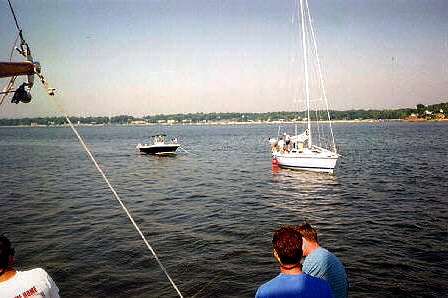

AMVER Blog has “Tsakos Ship Wins International Safety At Sea Amver Award” including video of the rescue. The ship that came to the rescue of four sailors in distress was the M/T PARTHENON.
The Scoop Deck has Malaysia’s deployment of a Q-Ship to fight piracy off Somalia in “The return of the ‘Mystery Ships’“. (Found via Neptunus Lex)
The Stupid Shall Be Punished has “Submarines Interacting With Idiot Civilians“.
Breakbulk Industry News has “Corps to spend $68.8 million on Calcasieu Ship Channel“.
After years of under-funding, the U.S. Army Corps of Engineers has pledged to spend $68.8 million to dredge the Calcasieu Ship Channel at the Port of Lake Charles, perform much needed repairs on the dredge disposal areas, control erosion on the channel sides and perform other deferred maintenance of channel features, the port announced.
From 2003 to 2009 the port requested some $184.5 million for badly needed dredging and maintenance but received only 50 percent of the money needed to maintain the channel.
intheboatshed.net has “London Whalers explain how to row“.
Mr. Boat Blog has impressive head-on video of a seaplane crash.
Barents Observer has “Nuclear waste cargo sailing the Barents Sea“.
The voyage from Gremikha to Murmansk normally takes one day. This is the same route as the Russian retired submarine K-159 took when it sank northeast of the inlet to the Kola Bay in August 2003. The vessel which is sailing with the highly radioactive spent fuel this week is the 35 year old Serebryanka.
The rusty spent nuclear fuel containers have been stored outdoor at Gremikha for 40 years, posing a grave radiation threat. They contain uranium fuel from some of the Soviet Union’s first nuclear powered submarines, which at that time were based at Gremikha. The submarines reloaded their deadly radioactive spent fuel to the onshore open-air storage site.
—————————————-
Fairplay Daily News has:
Beaten seafarers rescued – HOSTAGE seafarers have reportedly been rescued by a Portuguese warship off Somalia after being held and beaten by pirates for 10 days. “They hit the crew all over, on the head, everywhere,” the captain of the dhow Vishvakalyan, Ismail Abdurehman, told Reuters. The pirates had released the weakened crew on the pillaged dhow on Friday night, shooting wildly in the air. The Portuguese frigate NRP Corte-Real intercepted the vessel on Saturday about 20 n-miles southeast of Hobyo and gave them food and fuel. Lieutenant Dario Precioso told Reuters from warship that the dhow’s crew had set off for the Yemeni island of Socotra after being released, “but they probably would have died if we hadn’t found them, as they had no supplies”. Abdurehman said the pirates attacked Vishvakalyan as it was transporting charcoal from Brava, south of Mogadishu, to Sharjah in the UAE. – Fairplay Homepage (Used with Permission)
AND:
What Iran vote means for tankers – IRAN’S election has probably put the kibosh on foreign investment in Iranian oil shipping, IHS Global Insight said today. “It seems doubtful that major Western investors will be willing to follow through investment commitments with real funding,” concluded its analysis, titled ‘Another Four Years of Energy Impasse?’ President Mahmoud Ahmedinejad was pronounced re-elected by the interior ministry, polling more than 60% in a high reported turnout of 85%. That result is being challenged on Tehran’s streets, but the analysis pointed out it’s likely to stand up, adding: “The president’s proclivity for unpalatable international positions” has significantly increased the risk of doing business with Iran. “With a second four-year term apparently now confirmed, this may yet embolden the president further,” Global Insight warned. “The Ahmedinejad legacy and future remains an overwhelmingly negative one for the oil sector.” – Fairplay Homepage (Used with Permission)
—————————————-
Submissions for future editions:
Please submit articles for inclusion in next week’s edition using the following submit form at Blog Carnival. You are also welcome to email stories and photos to [email protected] for inclusion in future editions as well as suggest areas of coverage.
—————————————-
Previous Editions: As linked below or click on the tag ‘Maritime Monday’ for all gCaptain editions.
1 – 2 – 3 – 4 – 5 – 6 – 7 – 8 – 9 – 10 – 11 – 12 – 13 – 14 – 15 – 16 – 17 – 18 – 19 – 20 – 21 – 22 – 23 – 24 – 25 – 26 – 27 – 28 – 29 – 30 – 31 – 32 – 33 – 34 – 35 – 36 – 37 – 38 – 39 – 40 – 41 – 42 – 43 – 44 – 45 – 46 – 47 – 48 – 49 – 50 – 51 – 52 – 53 – 54 – 55 – 56 – 57 – 58 – 59 – 60 – 61 – 62 – 63 – 64 – 65 – 66 – 67 – 68 – 69 – 70 – 71 – 72 – 73 – 74 – 75 – 76 – 77 – 78 – 79 – 80 – 81 – 82 – 83 – 84 – 85 – 86 – 87 – 88 – 89 – 90 – 91 – 92 – 93 – 94 – 95 – 96 – 97 – 98 – gCaptain Editions: 99 – 100 – 101 – 102 – 103 – 104 – 105 – 106 – 107 – 108 – 109 – 110 – 111 – 112 – 113 – 114 – 115 – 116 – 117 – 118 – 119 – 120 – 121 – 122 – 123 – 123a – 124 – 125 – 126 –127 – 128 – 129 – 130 – 131 – 132 – 133 – 134 – 135 – 136 – 137 – 138 – 139 – 140 – 141 – 142 – 143 – 144 – 145 – 146 – 147 – 148 – 149 – 150 – 151 – 152 – 153 – 154 – 155 – 156 – 157 – 158 – 159 – 160 – 161 – 162 – 163 – 164 – 165 – 166 – 167
—————————————-
Unlock Exclusive Insights Today!
Join the gCaptain Club for curated content, insider opinions, and vibrant community discussions.
Be the First
to Know


Join the 107,331 members that receive our newsletter.
Have a news tip? Let us know.
Why Join the gCaptain Club?
Access exclusive insights, engage in vibrant discussions, and gain perspectives from our CEO.
Sign Up
 Join The Club
Join The Club



